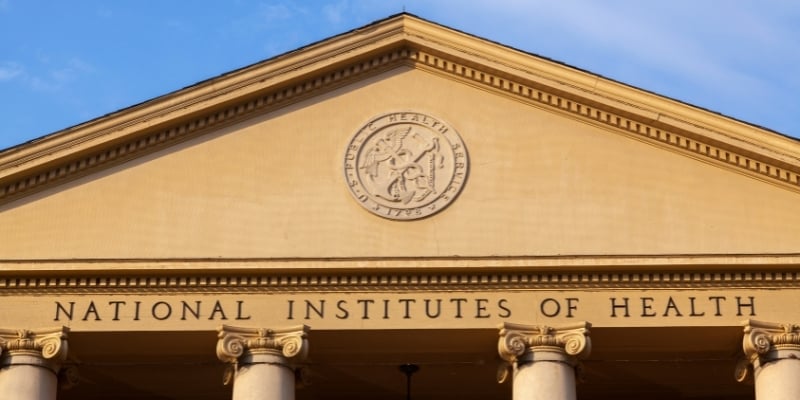The National Academy of Medicine (NAM) has named Spero M. Manson as the recipient of the 2021 Rhoda and Bernard Sarnat International Prize in Mental Health for his 43-year career dedicated to improving the mental health of American Indians and Alaska Natives — and bringing a culturally informed lens to the assessment, epidemiology, treatment, and prevention of mental health conditions. The award, which recognizes Manson’s achievements with a medal and $20,000, will be presented at the NAM’s virtual annual meeting on October 17, 2021. Manson, Pembina Chippewa, is a distinguished professor of public health and psychiatry at the University of Colorado Anschutz Medical Campus and The Colorado Trust Chair in American Indian Health at the Colorado School of Public Health.
As the founder of the Centers for American Indian and Alaska Native Health (CAIANH), Manson pursues research, education, program development, training, and collaboration with 250 Native communities, spanning rural, reservation, urban, and village settings. In this role, he has worked to improve access to and delivery of mental health services, inform policy change for Native veterans, and mentor younger generations of American Indian and Alaska Native scientists.
Mental health conditions, including post-traumatic stress disorder (PTSD), depression, and alcohol and substance abuse, are highly stigmatized among American Indian and Alaska Native people. Discriminatory public policies, generational trauma, and Western treatment models have also affected the quality and outcomes of mental health care. Throughout his career, Manson has sought to redress these historical inequities and incorporate Native experience, culture, and traditions in his research.
Manson has spearheaded initiatives to integrate mental health services in primary care settings in tribal and Indian Health Service programs. He has worked with Southcentral Foundation, First Nations Community HealthSource, Tanana Chiefs Conference, and Cherokee Nation of Oklahoma.
One of Manson’s areas of research — combat trauma among Native veterans of the Vietnam War — has prompted lasting policy change. His research demonstrated the role of traditional tribal ceremonies in ameliorating serious emotional and psychological problems among returning veterans, and in contributing to the long-term wellbeing of American Indian and Alaska Native peoples in general. Leveraging this research, he assisted tribal nations in negotiating an April 1998 memorandum of agreement with the Veterans Administration to ensure traditional medicine services were reimbursed for Native veterans suffering from PTSD. This agreement still stands today, and it has set the stage for compensating tribes for similar use of cultural healing resources.
As early as 1999, Manson helped to develop real-time interactive videoconferencing to increase American Indian veterans’ access to medical and behavioral health care services. He also laid the groundwork for a nationwide program through which the VA funds 14 tele-psychiatry clinics supported by CAIANH. These clinics serve hundreds of patients and family members and offer diagnostic services, brief psychotherapy, medication prescription and monitoring, and support groups. In many remote rural communities, this is a critical resource for people who would otherwise be even more isolated and without help.
Manson’s research contributions are a hallmark of graduate medical education today. He was engaged in the development of the "Diagnostic and Statistical Manual of Mental Disorders" (DSM) handbook, which is widely used by clinicians and psychiatrists to diagnose psychiatric illnesses. Manson and his colleagues introduced culture into the diagnostic criteria and their operationalization, outlining how cultural understanding can improve assessment and treatment for a range of clinical cases.
As the first member of his family to complete a post-secondary education, Manson is invested in mentoring the next generation of American Indian and Alaska Native PhDs. NIH principal investigators now number more than 120 American Indians and Alaska Natives — many of whom are Manson’s mentees. He has also worked to establish more ethical, collaborative research partnerships between tribal nations and academic institutions.
“Dr. Manson courageously focused on the mental health of American Indian and Alaska Native people at a time when it was seen as a narrow interest. His tremendous contributions to research on American Indian and Alaska Native mental health have not only advanced the scientific evidence base but also informed how we can provide more accessible, culturally informed, and compassionate care for all members of society,” said National Academy of Medicine President Victor J. Dzau. “And because of Dr. Manson’s mentorship, a new generation of American Indian and Alaska Native scientists is shaping a mental health research agenda that is responsive and meaningful to their local communities.”
Manson has been an NAM member since 2002. He has written 280 peer-reviewed publications, and has earned 35 awards from the National Institutes of Health, Centers for Disease Control and Prevention, Indian Health Service, American Public Health Association, Veterans Administration, universities, and numerous professional organizations.
Since 1992, the Sarnat Prize has been presented to individuals, groups, or organizations that have demonstrated outstanding achievement in improving mental health. The prize recognizes — without regard for professional discipline or nationality — achievements in basic science, clinical application, and public policy that lead to progress in the understanding, etiology, prevention, treatment, or cure of mental disorders, or to the promotion of mental health. As defined by the nominating criteria, the field of mental health encompasses neuroscience, psychology, social work, nursing, psychiatry, and advocacy.
The award is supported by an endowment created by Rhoda and Bernard Sarnat of Los Angeles. Rhoda Sarnat was a licensed clinical social worker, and Bernard Sarnat was a plastic and reconstructive surgeon and researcher. The Sarnats’ concern about the destructive effects of mental illness inspired them to establish the award. This year’s selection committee was chaired by Gary L. Gottlieb, professor of psychiatry, Harvard Medical School.
The National Academy of Medicine, established in 1970 as the Institute of Medicine, is an independent organization of eminent professionals from diverse fields including health and medicine; the natural, social, and behavioral sciences; and beyond. It serves alongside the National Academy of Sciences and the National Academy of Engineering as an adviser to the nation and the international community. Through its domestic and global initiatives, the NAM works to address critical issues in health, medicine, and related policy and inspire positive action across sectors. The NAM collaborates closely with its peer academies and other divisions within the National Academies of Sciences, Engineering, and Medicine.






